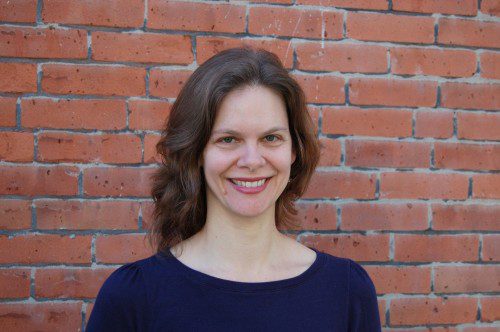Gage resignation sparks University-wide discourse on academic freedom
The professor’s decision to leave Grand Strategy left administrators and colleagues grappling with the meanings of academic freedom.

Courtesy of Beverly Gage
In September, historian Beverly Gage announced her intention to resign from her role as director of Yale’s Brady-Johnson Program in Grand Strategy.
Gage pointed to what she called the University’s failure to push back against curricular interference from donors — sparking broad discourse on whether Yale adequately ensures the academic freedom of its members.
“This is not a pay-to-play institution,” Gage told the News in an interview in the fall. “That is not how you get to influence the curriculum — you want people who have expertise, pedagogy, skills making those kinds of decisions.”
The renowned American history professor first took the helm of Grand Strategy — which offers a year-long international politics course to about 20 students — in 2017, and was known as a well-liked professor who added new materials on social movements to the course’s curriculum.
Initially founded in 2000, Grand Strategy received an endowment in 2006 for its continuation from alumni Nicholas F. Brady ’52 — who served as United States treasury secretary under former Presidents Ronald Reagan and George H.W. Bush — and Charles B. Johnson ’54, who gave the largest donation in Yale’s history.
But in an announcement first reported by the New York Times, Gage said Brady and Johnson were attempting to unduly influence the content of the course by appointing conservative figures to a program advisory board. The two had expressed dismay over the program’s updated curriculum as well as an opinion authored by Grand Strategy affiliate and professor of political science Bryan Garsten.
Ultimately, the University indeed created a five-member board. Members included former U.S. Secretary of State Henry Kissinger, who served under former President Richard Nixon, as well as Stephen J. Hadley, former national security adviser to George W. Bush, and Thomas H. Kean, the former Republican governor of New Jersey.
Gage described her qualm as not one with the board’s creation itself, but rather with the lack of ideological, gendered and racial diversity.
Following Gage’s announcement, many professors across the University expressed their support for Gage’s stance, both as individuals and among groups.
Salovey quickly responded to the controversy with an Oct. 1 statement, emphasizing Yale’s commitment to academic freedom. He maintained that the University is committed to ideological diversity while also emphasizing “an obligation” to honor the agreements that the University makes with its donors.
“For everyone’s benefit, I should have tried harder to improve the situation,” Salovey wrote. “I have unqualified respect and admiration for Professor Gage, and I am genuinely sorry that she did experience more unsolicited input from donors than faculty members should reasonably be expected to accept.”
The Faculty of Arts and Sciences Senate issued a resolution later that month calling for greater safeguards for academic freedom to be implemented in Yale’s donation policies. In February, Salovey announced members for an ad hoc committee to review such policies.
In the aftermath, members of the FAS continued to discuss potential policies that may — or may not — serve to better support academic freedom.
Some individual professors took to Twitter to encourage and publicly defend Gage, while groups — like the History department — issued formal statements of support.
“No faculty member should have their courses or programs under outside surveillance,” the department’s statement reads. “We would like explicit reassurance that the university administration will protect the academic freedom of all faculty members and the integrity of all departments, programs, centers, and institutes on our campus.”
At the same time, however, some faculty members asserted that academic freedom already is already strong at Yale. Computer science professor David Gelernter, for one, wrote in a December email to the News that the University had not “interfered with any of [his] publications, speeches, appearances or anything else.”
Several faculty advocated for more explicit protections in both existing and future donor agreements. History professor Glenda Gilmore suggested, for example, that a public standard clause pertaining to academic freedom could be included in each donor agreement, hopefully minimizing qualms about transparency that are wrought by the typically confidential nature of such agreements.
The FAS Senate was formed in 2013.



